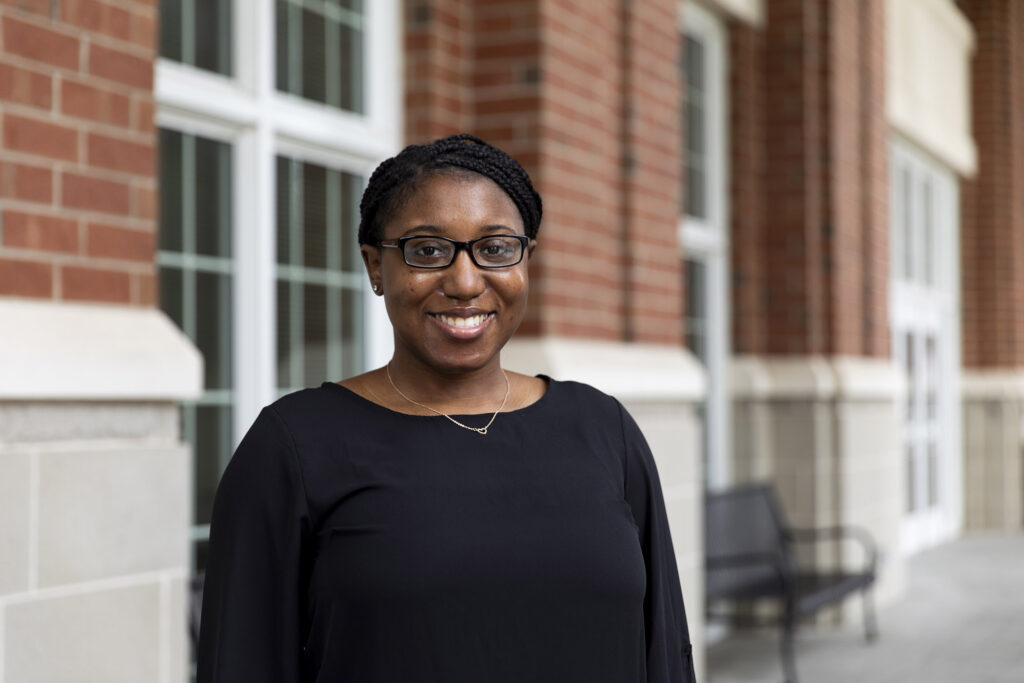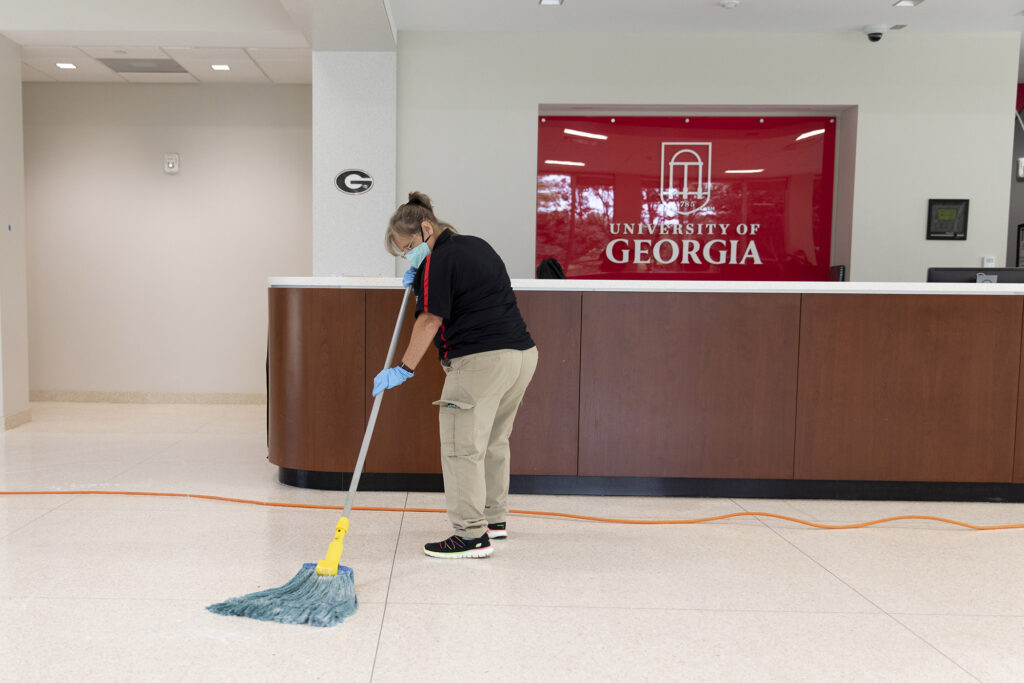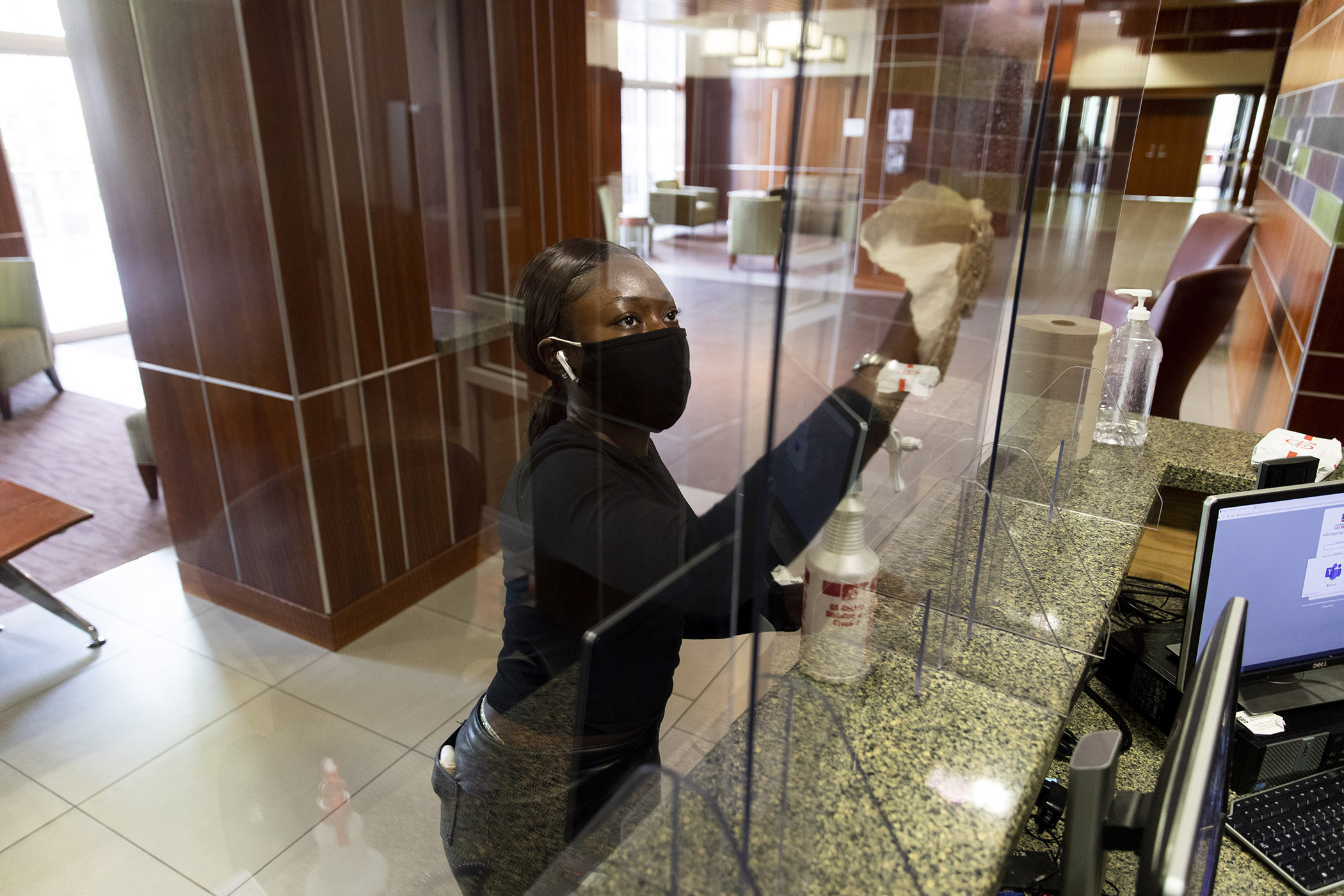Roses are blooming outside of the University of Georgia’s Building 1516 residence hall as students wearing masks exit the building on their way to class. Inside, the lobby is spotless and quiet. A masked student worker behind a row of plexiglass shields gets up to clean the barrier with disinfectant. She’s been trained to sanitize this barrier—as well as the keyboard, mouse and countertop—every hour and at the end of her shift.
The building’s residents, a mix of first-year and upper-class students, must wear masks at all times inside, unless they are in their own rooms or actively eating. For the most part, everyone has been following that directive, said Desiree’ Johnson, the residence hall director who is a doctoral student in the College of Education. “If we see a student who isn’t wearing one, we have extra masks that we hand out. There are black ones for students and blue ones for parents.”

Every morning before work, Johnson takes her own temperature and fills out DawgCheck, UGA’s online portal where students, faculty and staff report symptoms each day before being cleared to come on campus. She takes her job and her heath seriously, and gets regular COVID-19 tests at Legion Field to ensure she is negative.
This summer, Johnson trained her nine resident assistants, two C.L.A.S.S. advocates and 22 community services assistants on the new protocols of living and working in a residence hall during a pandemic. The virtual training included new rules for sanitizing and social distancing. Wipes and hand sanitizer can be found in dispensers throughout the building. Drinking fountains are blocked off with caution tape. Social distance markers are placed on the floor when a small group gathers in the common room. Students with bathrooms in their rooms were given cleaning kits to reduce the amount of people going in and out of rooms. (During a normal year, housing staff would clean those bathrooms.)
Preparing for issues
The training also included having staff members roleplay how to handle potential situations. They do this every year, said Johnson, but this summer it was done in breakout rooms on Zoom, and the potential scenarios included problems that could arise due to COVID-19.
Another new rule is no guests allowed. “Student workers sitting at the desk get to know most of the residents by sight,” said Johnson. If an unknown person is waiting in the lobby, the desk worker approaches and asks if they are waiting on someone and how they can help.
An express checkout system is in place now so no workers need to enter the dorm rooms when students leave at the semester’s end for break. Maintenance workers are allowed inside, if necessary, but they must wear masks and not have any COVID-19 symptoms.

Health and safety checks of the rooms, which involve staff checking the rooms for cleanliness, safety issues and policy violations, will be done in December when the students are gone, explained Johnson.
To keep communication flowing, Johnson started a newsletter to share what’s going on in the building and in housing. The weekly email includes reminders to wear masks and not have guests. Digital announcements are also shown on a screen behind the front desk.
Assisting students
Part of Johnson’s job involves connecting with students, often via Zoom. “I’ve mostly been talking to first-year students who are trying to get the feel of campus and want ideas about how to get involved and meet people,” said Johnson, who lets them know about workshops going on and what’s happening at the student center. She also encourages students to go to the programs on their floor held by RAs so they can meet people, albeit from a 6-foot distance and with a mask.
Is the residence hall quieter this year? Not really, said Johnson. “A lot of people in band live here, and a lot have to practice in their rooms now, so we’ve had a few noise complaints about people playing their instruments. We encourage them to go to a first-floor study room and we sanitize it after they are done practicing.”


